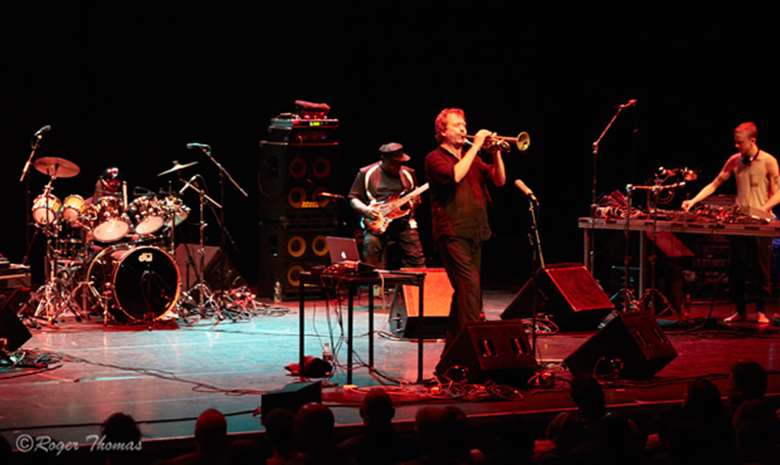Sly & Robbie with Nils Petter Molvaer create blissful ‘Nordub’ at Barbican
Monday, July 20, 2015
A meeting of the world’s greatest rhythm section, two progressive soloists and a producer raises the prospect of a night of instrumental groove glory.


Register now to continue reading

Thank you for visiting Jazzwise.co.uk. Sign up for a free account today to enjoy the following benefits:
- Free access to 3 subscriber-only articles per month
- Unlimited access to our news, live reviews and artist pages
- Free email newsletter